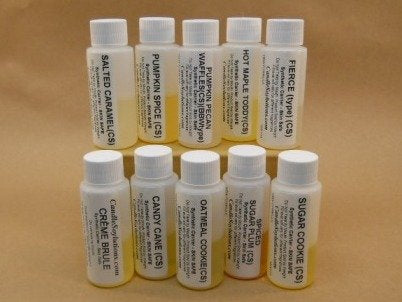
Let’s Talk Synthetic Fragrance Oils!
Synthetic fragrance oils are commonly used in candles, perfumes, cleaning products, and even personal care items to create appealing scents. However, these fragrances may come with hidden health risks. Made from a cocktail of chemicals, synthetic fragrance oils can emit volatile organic compounds (VOCs) and other substances that impact indoor air quality and pose potential health concerns.
1. Presence of Phthalates
Phthalates are often added to synthetic fragrances to make scents last longer. However, phthalates are known endocrine disruptors, meaning they can interfere with hormonal systems and have been linked to reproductive health issues and developmental concerns. Inhaling phthalates can expose the body to these risks, particularly if used frequently in enclosed spaces.
2. Emissions of VOCs
When heated or diffused, synthetic fragrance oils release VOCs like benzene and formaldehyde, both of which are associated with respiratory problems and cancer risks over time. These compounds contribute to indoor air pollution, which can worsen asthma and allergies and cause eye, nose, and throat irritation.
3. Synthetic Musks and Allergens
Synthetic musks are often added to fragrance oils for a lingering scent but may accumulate in the body over time. Research suggests they may have toxic effects, potentially causing hormone disruption and affecting immune function. Additionally, synthetic fragrances often contain allergens that can trigger headaches, skin irritation, and respiratory reactions in sensitive individuals.
4. Limited Regulation and Transparency
One of the challenges with synthetic fragrances is that companies are not required to disclose all ingredients due to trade secrets. This lack of transparency makes it difficult for consumers to know exactly what they are inhaling, which can be problematic for those trying to avoid certain chemicals.
Choosing Natural Fragrance Alternatives
Essential oils are derived from plants and don’t contain the harsh synthetic chemicals often found in artificial fragrances. While they should still be used responsibly, essential oils are generally considered safer for both people and the environment.
Opting for natural fragrance options can improve your indoor air quality, reduce potential health risks, and still provide the enjoyable, fresh scents we all love.
